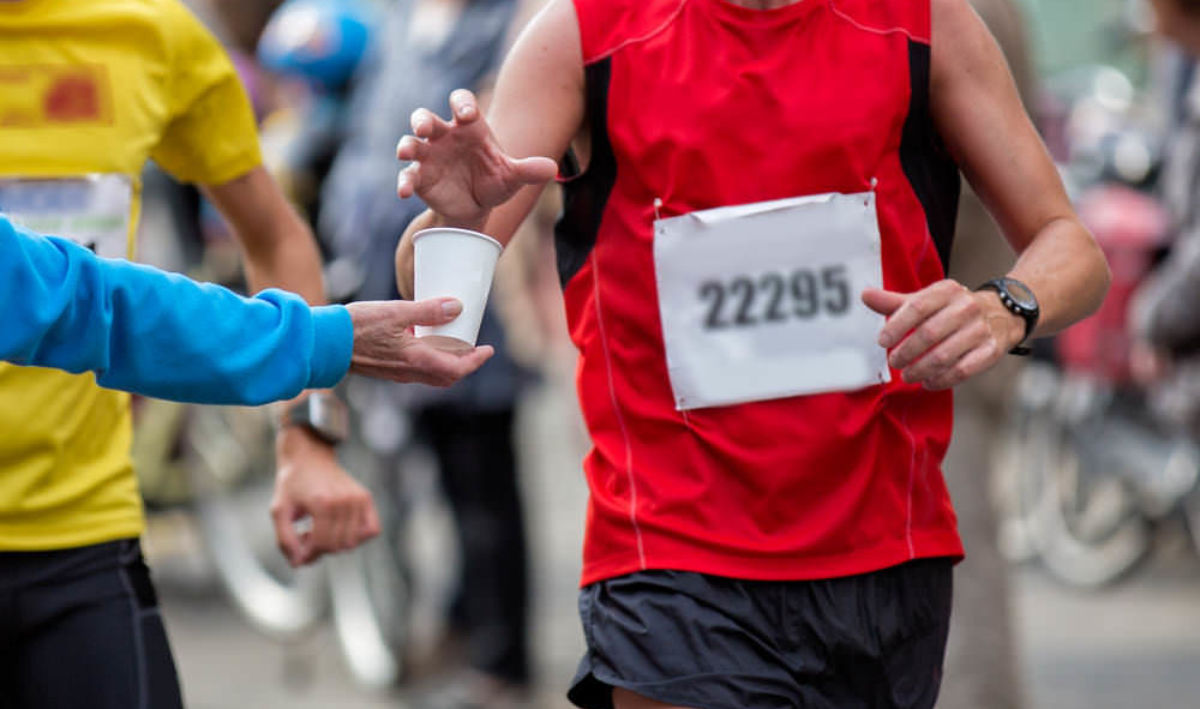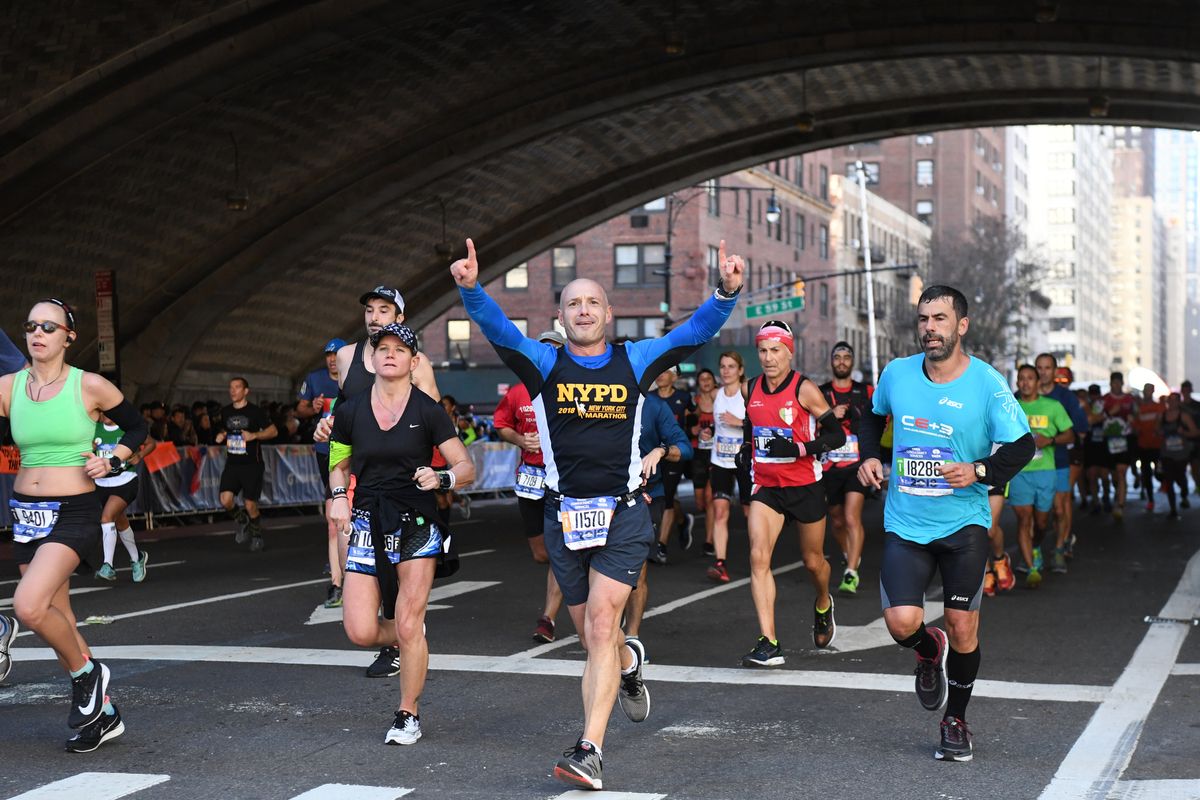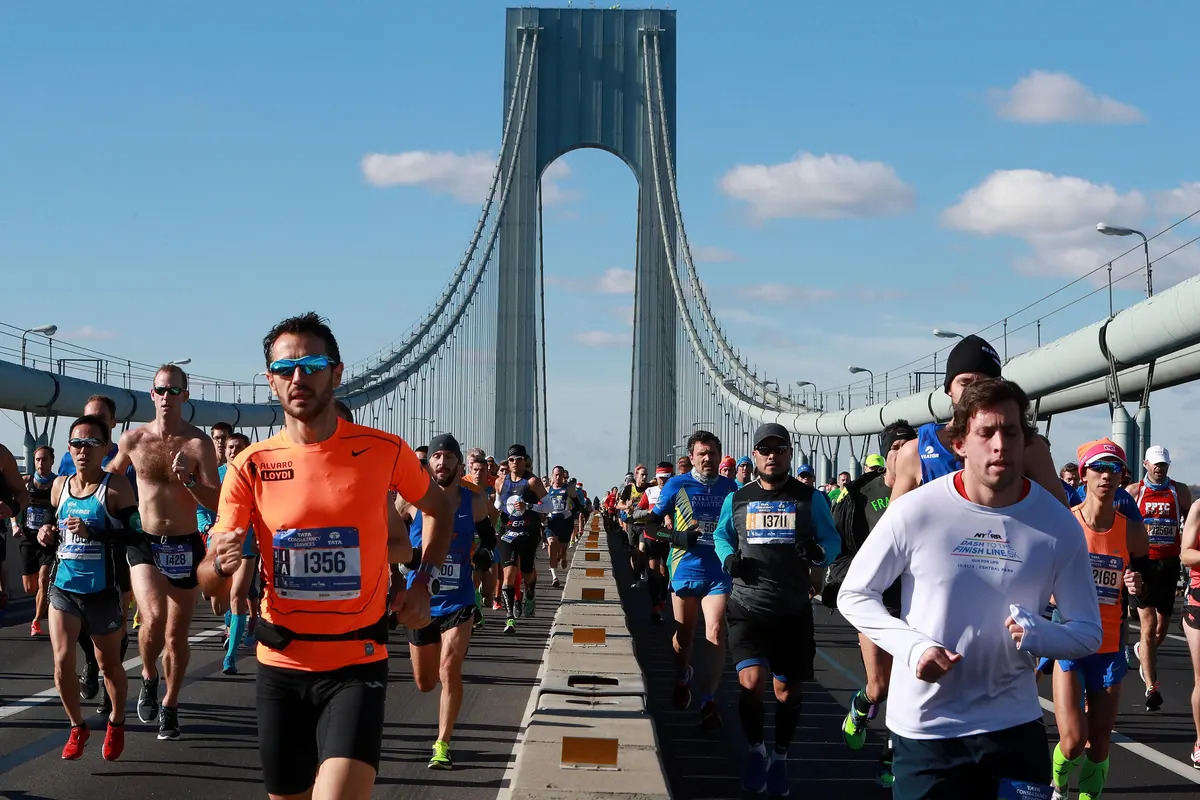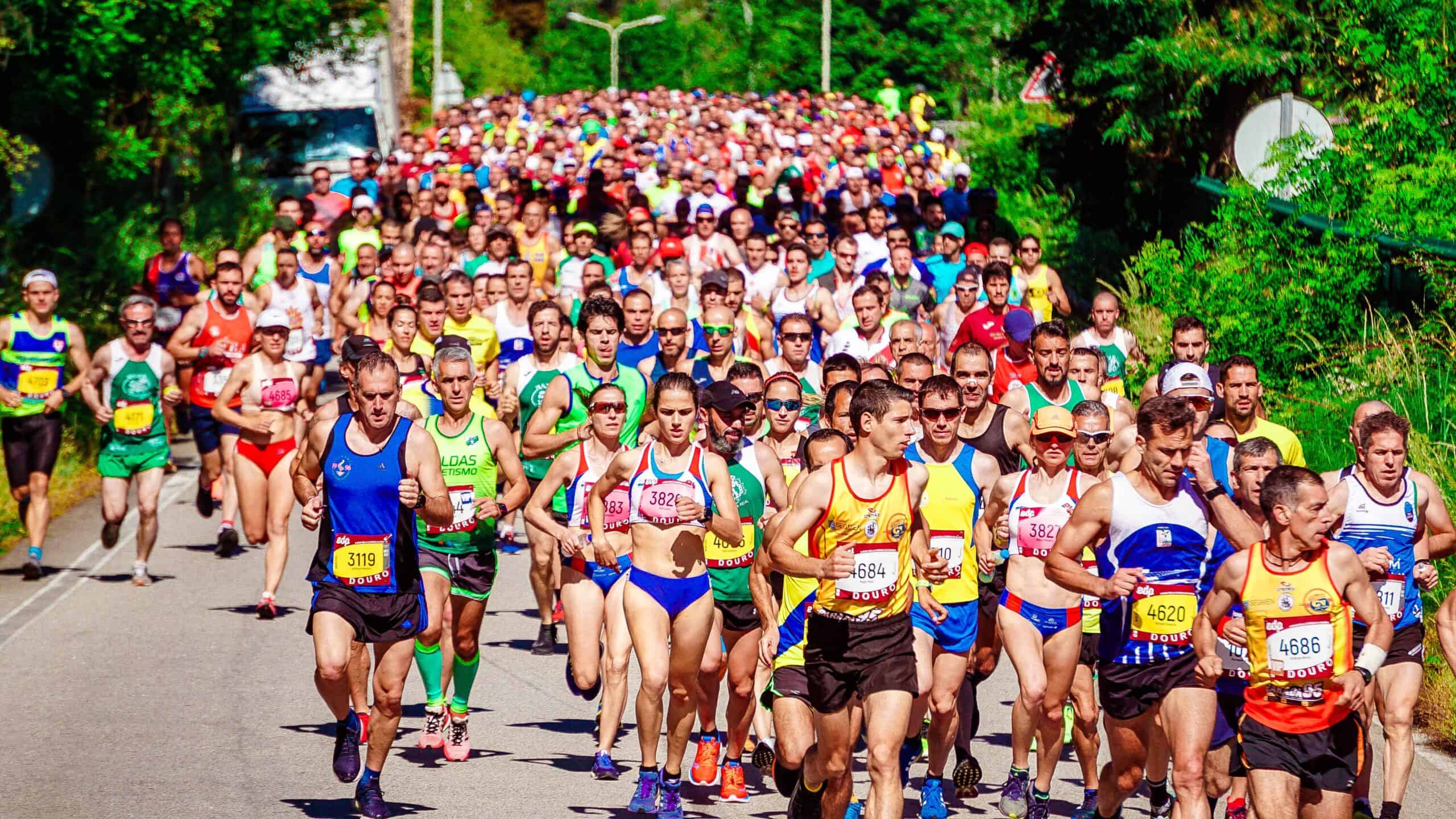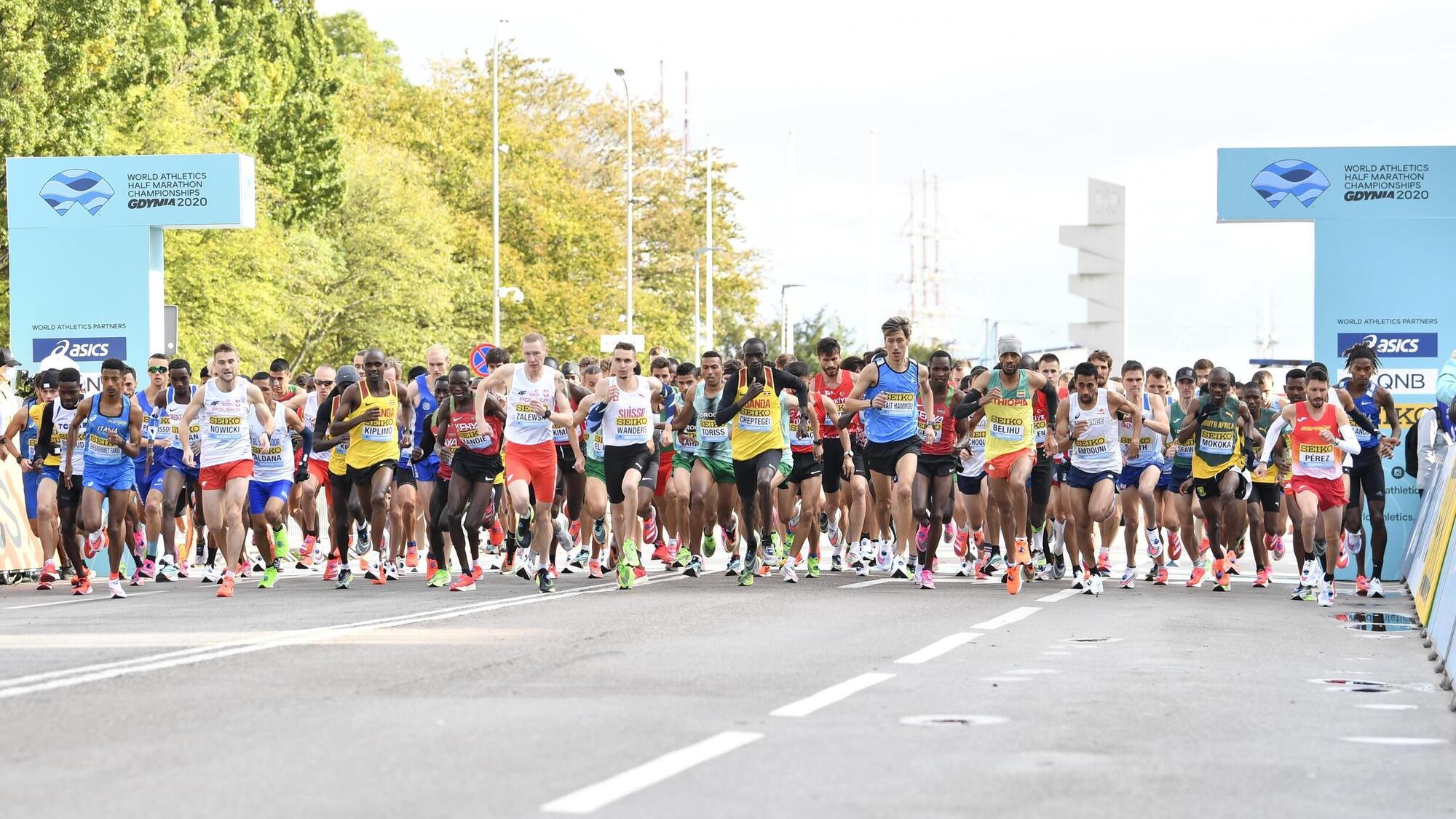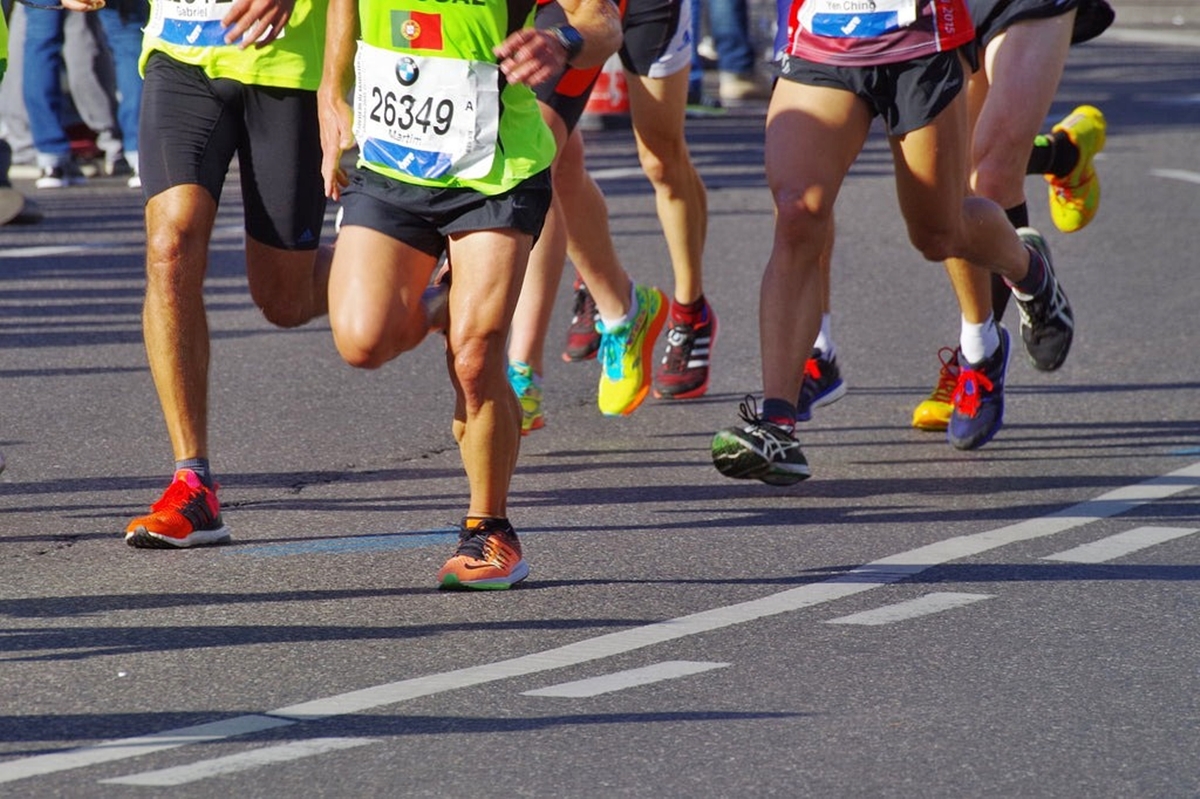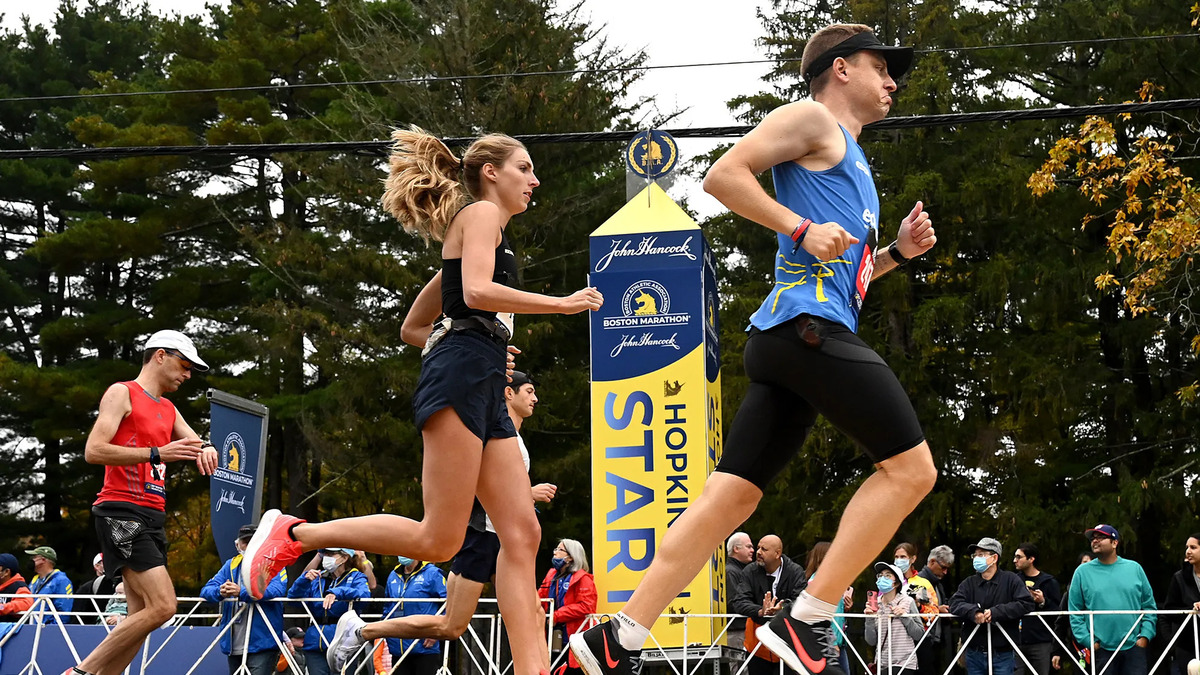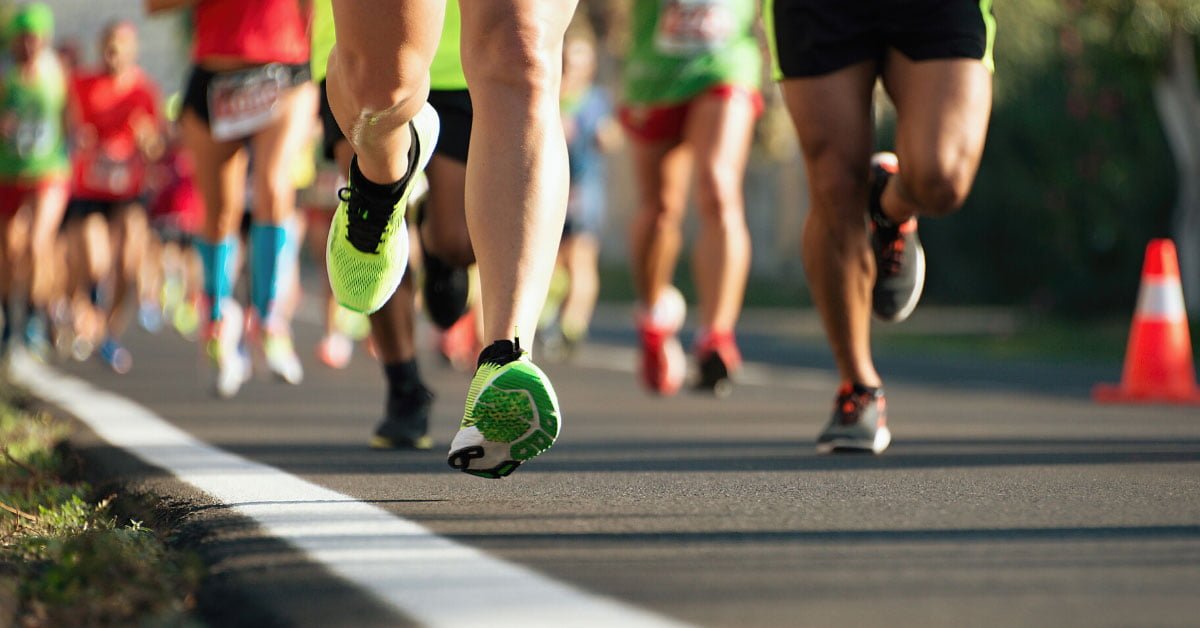

Featured
What Is A Marathon
Modified: January 22, 2024
Discover which marathon is happening today in our featured events. Stay updated with the latest race information and join in on the excitement.
Introduction
Welcome to the exciting world of marathons! Whether you”re a seasoned athlete or just starting your fitness journey, marathons are a fantastic way to push your limits, test your endurance, and achieve remarkable personal goals. These long-distance races have captivated the hearts and minds of people all over the world, captivating both participants and spectators alike.
A marathon is a challenging footrace with a distance of 26.2 miles (42.195 kilometers). It is a true test of physical and mental strength that requires months of training, discipline, and commitment. Participants push themselves to the limit as they navigate through various terrains, climates, and conditions, facing both moments of triumph and inevitable moments of struggle.
The history of marathons dates back to ancient times, originating from the legendary tale of Pheidippides, a Greek messenger who ran from the battlefield of Marathon to Athens to deliver the victorious news. This historic event laid the foundation for the modern marathon, which has evolved into a global phenomenon.
Today, marathons are held all over the world, attracting thousands of participants from different walks of life. From the prestigious Boston Marathon in the United States to the iconic Berlin Marathon in Germany, each race has its own unique charm and allure. These marathons showcase stunning cityscapes, scenic routes, and enthusiastic crowds, creating an electrifying atmosphere that motivates runners to give their best performance.
Preparing for a marathon requires careful planning and dedication. Runners undergo months of training, gradually increasing their mileage and building endurance. They follow structured training programs, incorporating speed work, long runs, and cross-training to develop the necessary strength and stamina.
Nutrition and hydration also play a crucial role in marathon preparation. Runners must fuel their bodies with the right balance of carbohydrates, proteins, and fats to sustain their energy levels throughout the race. Hydration is equally important, as proper fluid intake helps prevent dehydration and muscle cramps.
While marathons provide a platform for personal achievement, they also come with their fair share of challenges. Runners must overcome physical fatigue, mental exhaustion, and the infamous “wall” – a point during the race where the body feels depleted of energy. The ability to push through these obstacles and cross the finish line is a testament to the indomitable spirit of marathon runners.
Marathons hold great significance in today’s society. They bring communities together, uniting people from diverse backgrounds in a shared pursuit of fitness and well-being. They inspire individuals to set goals, overcome obstacles, and achieve their full potential. Marathons also serve as fundraisers for charitable causes, raising awareness and financial support for various organizations.
Whether you”re a runner aiming to conquer your first marathon or a spectator cheering on the sidelines, marathons offer an unforgettable experience. So lace up your running shoes, feel the adrenaline coursing through your veins, and join the global marathon community for a journey of endurance, determination, and personal triumph!
What is a marathon?
A marathon is a long-distance race with a standardized distance of 26.2 miles (42.195 kilometers). It is considered one of the ultimate challenges in the world of running and endurance sports. Participants of marathons, known as marathoners or runners, aim to complete the grueling course within a specified time limit.
The name “marathon” originates from the legendary tale of Pheidippides, an ancient Greek messenger. According to historical accounts, Pheidippides ran from the battlefield of Marathon to Athens, a distance of approximately 26.2 miles, to deliver the news of the Greek victory over the Persians. This act of heroism formed the basis of the modern marathon race.
Marathons are typically held on roadways, taking participants through a carefully mapped out course. The race usually starts in a central location and follows a route that showcases the scenic beauty of the surrounding area. There are also off-road or trail marathons that provide a unique challenge through rugged terrains and natural landscapes.
Participating in a marathon requires a high level of physical fitness, endurance, and mental resilience. Runners train for months leading up to the race, gradually increasing the distance and intensity of their runs. They follow a structured training program that includes long runs, speed work, and cross-training exercises to improve their cardiovascular fitness and build strength. The goal is to develop the stamina needed to tackle the demanding race distance.
The marathon race itself is a test of physical and mental limits. Runners experience a rollercoaster of emotions as they navigate through the race course. Starting with a surge of excitement and adrenaline, they settle into a rhythm, maintaining a steady pace. As the miles accumulate, fatigue sets in, and the body begins to feel the physical strain. This is often referred to as hitting “the wall,” a point where the body’s energy reserves are depleted, and mental resilience becomes crucial in pushing through.
Marathons are typically organized with aid stations along the course to provide water, electrolyte drinks, and sometimes snacks to help runners stay hydrated and maintain their energy levels. Medical personnel are also present to assist participants in case of injuries or medical emergencies.
Marathons are not just about individual achievement; they are also a celebration of community spirit. Spectators line the streets, offering cheers of encouragement and support. Family, friends, and fellow runners come together to create an electric atmosphere that fuels the determination and perseverance of the participants.
Completing a marathon is a tremendous accomplishment that leaves participants with a sense of pride and fulfillment. It represents the culmination of months of hard work, dedication, and discipline. Crossing the finish line is a moment of triumph, marking the realization of personal goals and the overcoming of obstacles.
Marathon running has grown in popularity over the years, with millions of people around the world participating in marathons annually. Whether it’s to challenge oneself, raise funds for a cause, or simply experience the thrill of the race, marathons offer an incredible opportunity for individuals to push their limits and achieve extraordinary feats of athleticism.
History of marathons
The origins of marathons can be traced back to ancient Greece, where they have their roots in a fascinating story that has transcended time. According to legend, the marathon race was inspired by the heroic feat of Pheidippides, a Greek messenger who ran from the battlefield of Marathon to Athens to deliver a crucial message.
In 490 BCE, the Persian Empire launched an attack on Greece. The Athenian army, led by General Miltiades, faced the Persians in the Battle of Marathon. Despite being outnumbered, the Greeks triumphed over the Persians, securing a significant victory. As the story goes, Pheidippides was sent to Athens to bring the news of the victory.
Legend has it that Pheidippides ran the entire distance, approximately 26.2 miles, without stopping, and upon reaching Athens, exclaimed “Nenikikamen!” meaning “We have won!” before collapsing and passing away due to exhaustion. The spirit and determination displayed by Pheidippides became the inspiration behind the marathon race.
Although this story is steeped in mythology and historical inaccuracies, it fueled the imagination of organizers of the first modern Olympic Games in 1896. Pierre de Coubertin, the founder of the modern Olympics, decided to include a marathon race as a tribute to the ancient Greek origins of the Games.
On April 10, 1896, the marathon made its debut at the Olympic Games in Athens, Greece. The race course followed the path believed to have been taken by Pheidippides from Marathon to Athens. Spiridon Louis, a Greek athlete, emerged victorious and became a national hero in Greece. The marathon race quickly captivated the attention of the world and became one of the highlights of the Olympic Games.
Following the success of the marathon at the Olympics, the distance of 26.2 miles (42.195 kilometers) became the standard for marathon races. In 1908, the course for the London Olympics was adjusted to allow the race to start at Windsor Castle and finish in front of the royal box at the Olympic Stadium, ensuring that the race covered the exact distance of 26.2 miles.
Over the years, marathons gained popularity internationally, extending beyond the Olympic Games. Cities around the world started organizing their own marathon events, attracting runners from various countries. The Boston Marathon, established in 1897, is the oldest annual marathon and remains one of the most prestigious races in the world.
Marathons have evolved from exclusive events for elite athletes to mass participation races, with thousands of runners taking part in marathons worldwide. Today, marathons represent a celebration of human determination, perseverance, and the pursuit of personal goals. They bring together individuals from different backgrounds and cultures, united by the common goal of conquering the distance.
Marathons have also become a platform for charitable causes, with many events raising funds and awareness for various organizations. Runners participate not only to achieve personal milestones but also to make a difference in the lives of others.
The history of marathons is rich with tradition, inspiration, and remarkable feats of human athleticism. It is a story that continues to inspire generations of runners and spectators, reminding us of the power of the human spirit and the boundless possibilities that lie within.
Popular marathons around the world
Marathons have become a global phenomenon, with cities around the world hosting prestigious races that attract runners from all walks of life. These marathons showcase iconic landmarks, breathtaking scenery, and a vibrant atmosphere that make them must-do events for both elite athletes and recreational runners. Let’s explore some of the most popular marathons around the world:
- Boston Marathon: The Boston Marathon, established in 1897, is one of the oldest and most prestigious marathons. Held on Patriots’ Day in April, this race is known for its challenging course and strict qualifying standards. Runners from around the world strive to qualify for the Boston Marathon and earn the opportunity to run on the historic streets of Boston, cheered on by enthusiastic spectators.
- London Marathon: The London Marathon, first held in 1981, has gained international recognition and popularity. This iconic race spans the heart of London, passing by landmarks such as Tower Bridge, the Tower of London, and Buckingham Palace. Known for its energetic crowds and festive atmosphere, the London Marathon attracts both elite runners and charity fundraisers, raising millions of pounds for various charitable causes.
- Berlin Marathon: The Berlin Marathon is famous for its fast and flat course, making it a favorite for professional runners aiming to set personal records. Held in September, this race takes participants through the streets of Berlin, passing by historical sites like the Brandenburg Gate and the Berlin Wall. The Berlin Marathon has witnessed several world records being broken, solidifying its reputation as one of the most elite marathons in the world.
- New York City Marathon: The New York City Marathon is the largest marathon globally, attracting over 50,000 runners from around the world. The race winds its way through all five boroughs of New York City, showcasing the diversity and vibrancy of the city. The atmosphere is electric, with millions of spectators lining the streets, offering support and cheering on the participants. Crossing the finish line in Central Park is an iconic moment for every marathoner.
- Tokyo Marathon: The Tokyo Marathon is known for its impeccable organization and enthusiastic crowd support. This race takes participants through the heart of Tokyo, passing by landmarks like the Imperial Palace and Tokyo Tower. The Tokyo Marathon embodies the essence of Japanese hospitality, with thousands of volunteers and spectators providing encouragement and support to runners throughout the course.
- Chicago Marathon: The Chicago Marathon is renowned for its fast and flat course, offering participants an opportunity to achieve personal bests. Held in October, this race takes runners through the vibrant neighborhoods of Chicago, including the iconic Magnificent Mile and Grant Park. The Chicago Marathon is known for its exceptional organization and warm hospitality, attracting a diverse range of runners from around the globe.
These marathons are just a glimpse of the countless exceptional races that take place around the world. Each offers a unique experience, allowing participants to immerse themselves in the culture, history, and beauty of the host city. Whether you’re a seasoned marathoner seeking a challenge or a first-time runner looking to embrace the marathon experience, these popular marathons provide a remarkable opportunity to push your limits and create lasting memories.
Marathon training and preparation
Preparing for a marathon requires careful planning, dedication, and a structured training program. Training for a 26.2-mile (42.195-kilometer) race is a significant undertaking that involves gradually building endurance, improving speed, and strengthening the body to handle the demands of the race. Here are some key aspects of marathon training and preparation:
- Set a training schedule: Begin by creating a training schedule that suits your fitness level and allows for gradual progression. Ideally, your training program should span several months, gradually increasing weekly mileage and intensity.
- Build base mileage: Start with a solid foundation of running fitness by establishing a base mileage. This involves gradually increasing your weekly running distance over several weeks to build endurance.
- Incorporate long runs: Long runs are a crucial component of marathon training. These runs, usually done on weekends, gradually increase in distance to simulate the challenges of race day. They help improve endurance and mental strength.
- Include speed work: Speed work, such as interval training and tempo runs, helps improve running efficiency and pace. It involves alternating between periods of high-intensity running and recovery periods to build speed and stamina.
- Practice cross-training: Cross-training activities, such as swimming, cycling, or strength training, complement running by targeting different muscle groups and improving overall fitness. They also help prevent overuse injuries.
- Rest and recovery: Rest days are just as important as training days. They allow the body to recover, repair, and adapt to the stresses of training. Listen to your body and incorporate rest days into your training schedule.
- Get the right gear: Invest in a good pair of running shoes that provide adequate support and comfort. Additionally, wear moisture-wicking, breathable clothing to stay comfortable during long training runs.
- Focus on nutrition: Proper nutrition is essential for marathon training. Fuel your body with a balanced diet that includes carbohydrates, proteins, and healthy fats. Gradually increase your calorie intake to meet the energy demands of training.
- Hydrate effectively: Adequate hydration is crucial for maintaining performance and preventing dehydration. Drink water regularly throughout the day and during training runs. Consider carrying a water bottle or utilizing aid stations during long runs.
- Practice race day strategies: Experiment with various race day strategies during your training runs. This includes testing different fueling and hydration plans, as well as pacing strategies to optimize your performance on race day.
Remember, marathon training is a personal journey, and it’s important to listen to your body, adjust your training as necessary, and seek guidance from experienced runners or coaches if needed. With proper training and preparation, you’ll be ready to tackle the challenges of a marathon and cross the finish line with a sense of accomplishment and pride.
Nutrition and hydration during a marathon
Nutrition and hydration play a critical role in ensuring peak performance and maintaining energy levels during a marathon. Proper fueling strategies before, during, and after the race can greatly impact a runner’s performance and overall experience. Here are important considerations for nutrition and hydration during a marathon:
- Pre-race nutrition: In the days leading up to the marathon, focus on consuming a well-balanced diet that includes complex carbohydrates, lean protein, and healthy fats. This helps stock up the body’s glycogen stores, providing a readily available energy source for the race.
- Carbohydrate loading: About 1-3 days before the marathon, increase your carbohydrate intake to maximize glycogen stores. This can be done by incorporating foods such as pasta, rice, oats, and fruits into your meals.
- Race day breakfast: Consume a pre-race meal that is easily digestible and provides a mix of carbohydrates and a small amount of protein. Opt for familiar foods that you’ve tested during your training to avoid any potential stomach discomfort.
- During the race: Use a combination of energy gels, sports drinks, and water to maintain energy and hydration levels during the race. Follow a hydration plan that includes regular sips of water or sports drinks at aid stations along the course.
- Energy gels: Energy gels are a popular choice among marathoners for quick fueling during the race. These gels contain easily digestible carbohydrates that provide a burst of energy. Experiment with different brands and flavors during your training to find what works best for you.
- Electrolyte balance: Electrolytes, such as sodium and potassium, are essential for maintaining proper fluid balance and muscular function. Make sure to replenish electrolytes during the race through sports drinks or electrolyte tablets.
- Hydration strategy: Aim to drink water or sports drinks strategically throughout the race, taking small sips at regular intervals rather than gulping down large amounts at once. Avoid waiting until you feel thirsty to drink, as this may indicate dehydration.
- Post-race recovery: After completing the marathon, prioritize post-race nutrition to aid in muscle recovery and replenish glycogen stores. Consuming a combination of carbohydrates and protein within 30 minutes to an hour after the race helps kickstart the recovery process.
- Individual preferences: Every runner is unique, and what works for one person may not work for another. It’s crucial to practice nutrition and hydration strategies during training runs to determine what suits your body’s needs and tolerances.
- Consult a professional: If you’re unsure about your nutrition and hydration plan, consider consulting with a sports nutritionist or a registered dietitian. They can provide personalized advice tailored to your specific needs and help optimize your performance.
Remember, finding the right balance of nutrition and hydration during a marathon is a process of trial and error. It’s essential to practice your fueling strategies during your training runs to ensure they work well for you on race day. By fueling your body appropriately, you’ll maximize your energy levels and enhance your overall marathon experience.
Common challenges faced during a marathon
Completing a marathon is not without its challenges. The 26.2-mile (42.195-kilometer) distance tests both the physical and mental limits of runners. Understanding and preparing for these challenges can help you navigate them effectively and increase your chances of reaching the finish line. Here are some common challenges faced during a marathon:
- Physical fatigue: Marathon running puts significant stress on the body, leading to physical fatigue. As the miles accumulate, muscles may start to feel sore and tired. Training for the marathon with long runs and gradually increasing mileage can help prepare the body for the physical demands of the race.
- Mental exhaustion: Endurance events like marathons also require mental stamina. The monotony of the long race can lead to mental fatigue and negative thoughts. Stay mentally focused by breaking the race into smaller segments or milestones, visualizing crossing the finish line, and drawing inspiration from fellow runners and the cheering crowd.
- The “wall”: Hitting the infamous “wall” is a common challenge for marathoners. It refers to a point in the race, usually around the 20-mile mark, where the body feels depleted of energy. To overcome this, proper pacing, fueling, and mental preparation are essential. Gradually increasing long run distances during training can also help familiarize your body with the demands of running beyond the wall.
- Injury risk: Training for a marathon puts stress on your body, increasing the risk of injuries such as shin splints, stress fractures, or muscle strains. To minimize the risk, ensure you have an appropriate training plan that incorporates rest days, cross-training, and strength exercises to support your muscles and joints. Listen to your body and seek professional help if you experience persistent pain or discomfort.
- Weather conditions: Weather can have a significant impact on the marathon experience. Running in extreme heat, cold, rain, or strong winds can make the race even more challenging. It is crucial to be prepared by training in similar conditions, wearing appropriate gear, and adjusting your race-day strategies accordingly.
- Stomach issues: Gastrointestinal problems can arise during a marathon due to the physical demands and the impact of running. Issues like stomach cramps, nausea, or digestive distress can hinder performance. Experiment with different pre-race meals and fueling strategies during training to find what works best for your digestive system. Avoid trying new foods or energy gels on race day.
- Hydration management: Maintaining proper hydration during a marathon is crucial. Dehydration can lead to decreased performance, fatigue, and even medical issues. On the other hand, overhydration can cause bloating or hyponatremia. Develop a hydration strategy during training runs, understand your body’s fluid needs, and make use of aid stations provided along the course.
- Emotional ups and downs: The emotional rollercoaster during a marathon is a challenge many runners face. Feelings of excitement, determination, and doubt can arise throughout the race. Stay mentally prepared and acknowledge that emotions may fluctuate during the course. Draw strength from the support of family, friends, and fellow participants to overcome the highs and lows.
- Time management: Completing a marathon within a specific time frame can add stress and pressure. The fear of not meeting personal goals or cut-off times is a challenge many runners face. Setting realistic goals and focusing on the journey rather than just the outcome can help alleviate some of this pressure.
- Doubts and negative self-talk: Mental strength is key in a marathon. Negative self-talk and self-doubt can creep in, particularly during moments of physical or mental strain. Counteract negative thoughts with positive affirmations, visualization, and focusing on the reasons why you embarked on this marathon journey.
While every marathon presents its own unique challenges, being aware of these common obstacles and having strategies in place to overcome them can help you overcome the hurdles and achieve your marathon goals. Remember, embracing the challenges and persevering through them is a testament to your determination and resilience as a marathon runner.
The significance of marathons in today’s society
Marathons hold immense significance in today’s society, transcending their physical and competitive nature. They have evolved from niche athletic events to global phenomena that impact individuals, communities, and charitable causes. Here are some key ways in which marathons are significant in today’s society:
- Personal achievement and self-discovery: Marathons provide individuals with an opportunity to set ambitious goals, push their limits, and achieve remarkable personal milestones. Crossing the finish line of a marathon is a transformative experience that instills a profound sense of accomplishment, boosting self-confidence, and fostering a sense of self-discovery.
- Health and fitness: Marathons serve as catalysts for a healthier and fitter society. They inspire people from all walks of life to embark on fitness journeys, adopt healthy habits, and prioritize physical well-being. The training and preparation required for a marathon promote regular exercise, improving cardiovascular health, muscle strength, and overall fitness.
- Community and camaraderie: Marathons bring communities together, fostering a sense of unity and camaraderie. Participants and spectators alike are united in a shared pursuit of fitness, personal goals, and supporting each other. Families, friends, and local communities come together to show their support and create a positive and vibrant atmosphere that boosts morale and motivates runners to excel.
- Raising awareness and funds for charitable causes: Marathons serve as platforms for raising awareness and funds for charitable causes. Many marathons partner with nonprofit organizations, allowing runners to raise money for various causes close to their hearts. This helps to address social issues and contribute to positive change, making marathons a powerful tool for fundraising and creating awareness about important societal issues.
- Cultural and tourism promotion: Marathons showcase the rich culture, landmarks, and scenic beauty of host cities. They attract participants and spectators from all over the world, promoting tourism and providing economic benefits to the local community. Runners have the unique opportunity to explore different cities and experience their vibrant atmosphere, making marathons not just about the race but also about cultural immersion and exploration.
- Inspiration and motivation: Marathons inspire and motivate individuals to challenge themselves, embrace a growth mindset, and push beyond their perceived limits. The stories of marathoners overcoming obstacles, pursuing their dreams, and achieving extraordinary feats of athleticism serve as a source of inspiration for people of all ages and backgrounds. This inspiration extends beyond the running community, influencing individuals to pursue ambitious goals in all areas of life.
- Environmental consciousness: In recent years, marathons have placed greater emphasis on environmental sustainability and consciousness. Organizers are implementing measures to reduce waste, promote recycling, and minimize the carbon footprint of the event. This focus on sustainability helps raise awareness about the importance of environmental conservation and encourages participants to adopt eco-friendly practices.
In today’s society, marathons have become more than just races. They embody personal triumph, community spirit, and societal impact. They inspire individuals to challenge themselves physically and mentally, while also serving as a platform for social awareness and fundraising. Marathons unite people from different backgrounds, promoting health and fitness, fostering a sense of belonging, and creating memories that last a lifetime.
Conclusion
Marathons are more than just races; they are exhilarating journeys of personal growth, challenges, and triumphs. Whether you’re a seasoned runner or a novice enthusiast, marathons offer a unique opportunity to push your physical and mental boundaries, discover your inner strength, and achieve extraordinary feats of athleticism.
From their ancient Greek origins to the modern-day global phenomenon, marathons have captivated the hearts and minds of people around the world. They represent an incredible fusion of sportsmanship, determination, and community spirit. The significance of marathons in today’s society extends far beyond the physical experience of running.
Marathons encourage individuals to set ambitious goals, embrace a healthier lifestyle, and inspire others through their accomplishments. They promote not only personal achievement but also a sense of unity and camaraderie among runners and spectators. The support and encouragement from the community create a vibrant and positive atmosphere that motivates runners to push through challenges and cross the finish line.
Moreover, marathons serve as platforms for raising awareness and funds for various charitable causes. They bring attention to social issues, contribute to positive change, and make a lasting impact on society. By participating in marathons, runners become ambassadors for the causes they support, creating a ripple effect of change and generosity.
Marathons also offer an opportunity for cultural exploration, as they showcase the beauty, landmarks, and cultural heritage of the host cities. Runners and spectators alike have the privilege of immersing themselves in new environments, fostering appreciation for different cultures and promoting tourism in the process.
In conclusion, marathons have become a symbol of personal triumph, community spirit, and societal impact. They ignite the human spirit, inspire individuals to challenge their limits, and create lasting memories that transcend the race itself. Whether you’re a runner striving for a new personal best or a spectator cheering from the sidelines, marathons provide an extraordinary experience that shapes the lives of participants and leaves a lasting legacy.
